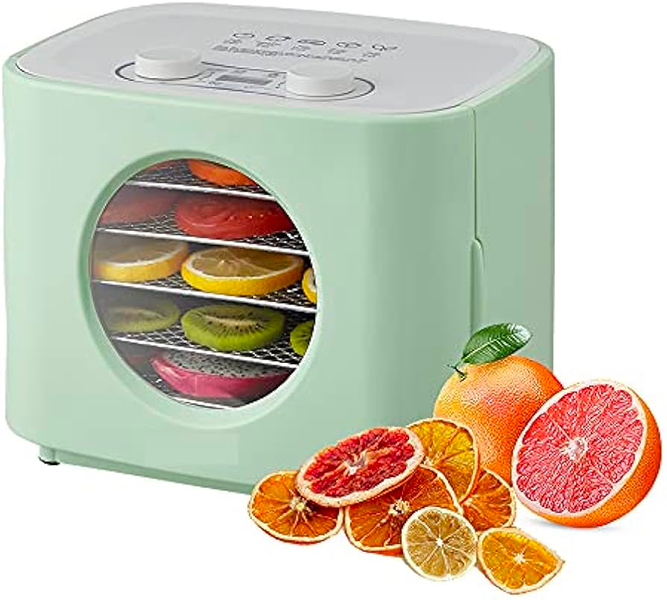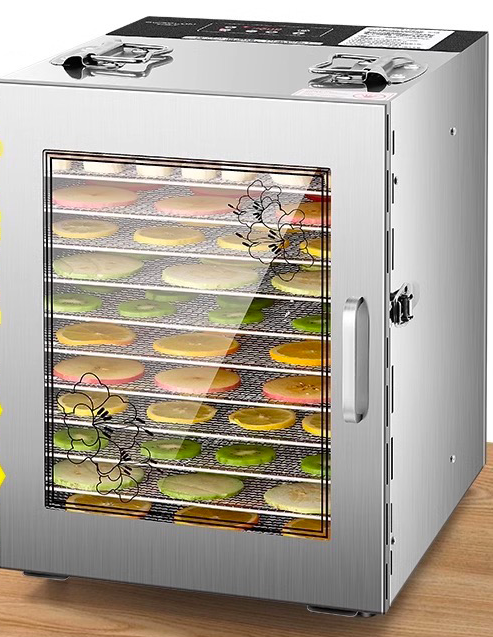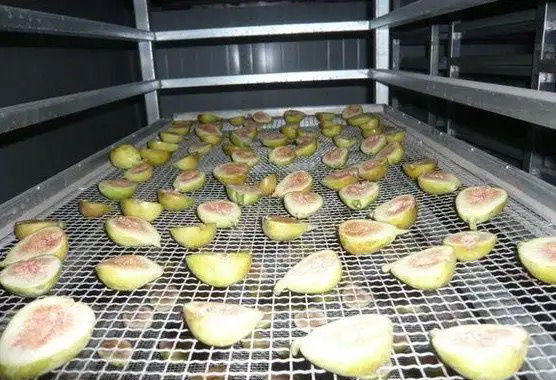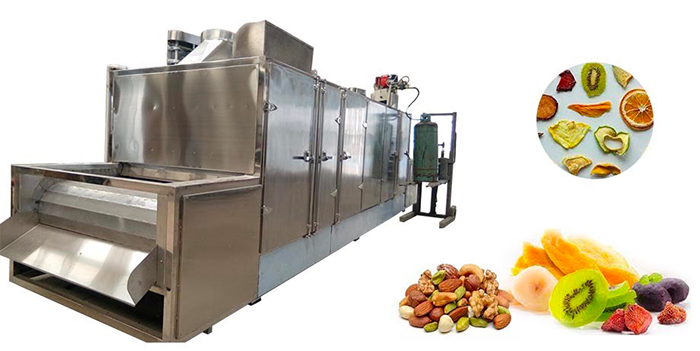
Content Menu
● Understanding Food Drying Technologies
>> Heat Pump Dryers
>> Condenser Dryers
● Heat Pump Dryer vs. Condenser Dryer: Key Differences
● Efficiency Comparison
● Applications in Food Processing
● The Role of Temperature Control
>> Importance of Temperature Control
● Environmental Considerations
● Cost Analysis
● Innovations in Food Drying Technology
● Conclusion
● FAQ
>> 1. What is the main difference between a heat pump dryer and a condenser dryer?
>> 2. Are heat pump dryers more energy-efficient than condenser dryers?
>> 3. Which type of dryer is better for sensitive foods?
>> 4. What are the typical applications for each type of dryer?
>> 5. Is the initial cost of a heat pump dryer worth it?
In the world of food drying, efficiency and effectiveness are paramount. As manufacturers and suppliers of food drying machines, it is essential to understand the differences between various drying technologies. This article will explore the comparison between heat pump dryers and condenser dryers, focusing on their efficiency, operational mechanisms, and suitability for different applications in food processing.

Understanding Food Drying Technologies
Food drying is a crucial process in preserving food quality, extending shelf life, and maintaining nutritional value. The two primary types of dryers used in this process are heat pump dryers and condenser dryers.
Heat Pump Dryers
Heat pump dryers use a refrigeration cycle to extract moisture from food products. They operate by circulating air through a heat exchanger, where warm air is generated to evaporate moisture. The moisture-laden air is then condensed back into water, which is removed from the system.
Advantages of Heat Pump Dryers:
- Energy Efficiency: Heat pump dryers are known for their energy efficiency. They can operate at lower temperatures while still effectively removing moisture from food products.
- Temperature Control: These dryers provide precise temperature control, which is crucial for preserving the quality of sensitive food items.
- Environmentally Friendly: Heat pump technology uses less energy compared to traditional drying methods, making it a more sustainable option.
- Versatility: Heat pump dryers can be used for a variety of food products, including fruits, vegetables, meats, and herbs. Their ability to adjust temperature and humidity levels allows them to cater to different drying needs.
Condenser Dryers
Condenser dryers utilize a different mechanism to remove moisture. They work by drawing in air from the environment, heating it, and then passing it over the food product. The moisture evaporates, and the humid air is condensed back into water.
Advantages of Condenser Dryers:
- Simplicity: Condenser dryers are generally simpler in design and easier to operate than heat pump dryers.
- Lower Initial Cost: These systems tend to have a lower initial purchase cost compared to heat pump dryers.
- Quick Drying Times: Condenser dryers can achieve faster drying times due to higher operating temperatures.
- Less Maintenance: With fewer components involved in their operation, condenser dryers often require less maintenance compared to heat pump systems.

Heat Pump Dryer vs. Condenser Dryer: Key Differences
| Feature | Heat Pump Dryer | Condenser Dryer |
| Energy Efficiency | High | Moderate |
| Operating Temperature | Low (gentle drying) | High (quick drying) |
| Initial Cost | Higher | Lower |
| Moisture Removal | Continuous and efficient | Less efficient |
| Temperature Control | Precise | Limited |
| Environmental Impact | Lower carbon footprint | Higher energy consumption |
Efficiency Comparison
When comparing the efficiency of heat pump dryers and condenser dryers, several factors come into play:
1. Energy Consumption: Heat pump dryers consume significantly less energy due to their ability to recycle heat within the system. This results in lower operational costs over time.
2. Moisture Removal Rate: Heat pump dryers excel in moisture removal efficiency at lower temperatures, making them ideal for delicate foods that require gentle drying.
3. Drying Time: While condenser dryers may offer quicker drying times initially, heat pump dryers can achieve similar results with less energy consumption over longer periods.
4. Versatility: Heat pump dryers can be adjusted for various food types and moisture levels, providing flexibility that condenser dryers may lack.
5. Long-Term Cost Savings: Although heat pump dryers have a higher upfront cost, their energy efficiency translates into significant savings on electricity bills over time. This makes them an economically sound choice for businesses focused on long-term investments.
Applications in Food Processing
Both heat pump and condenser dryers have distinct applications in food processing:
- Heat Pump Dryers: Best suited for high-value products like fruits (e.g., apples, strawberries), vegetables (e.g., tomatoes, peppers), herbs (e.g., basil, thyme), and meats (e.g., jerky). The gentle drying process helps retain flavor, color, and nutritional content.
- Condenser Dryers: More appropriate for bulk drying applications where speed is prioritized over quality, such as grains (e.g., rice, corn) or legumes (e.g., beans). These systems are ideal for large-scale operations where rapid turnover is essential.
The Role of Temperature Control
Temperature control plays a vital role in the effectiveness of both types of dryers.
Importance of Temperature Control
- Preservation of Nutritional Value: Maintaining lower temperatures during the drying process helps preserve vitamins and minerals that can be lost at higher temperatures.
- Flavor Retention: Gentle drying prevents the degradation of essential oils and compounds responsible for flavor in foods like herbs and spices.
- Preventing Over-Drying: Precise temperature control reduces the risk of over-drying or burning food products, ensuring consistent quality across batches.
Environmental Considerations
As sustainability becomes increasingly important in food production and processing industries, the environmental impact of drying technologies cannot be overlooked:
- Heat Pump Dryers: With their lower energy consumption and reduced carbon footprint, heat pump dryers align well with environmentally friendly practices. They contribute to reducing greenhouse gas emissions associated with energy production.
- Condenser Dryers: While they may have a higher initial energy demand due to their operating temperatures, advancements in technology are helping to improve their efficiency as well.
Cost Analysis
When considering investment in drying technology for food processing businesses:
1. Initial Investment vs. Long-Term Savings: While heat pump dryers require a higher initial investment due to more complex technology, their long-term savings on energy bills can offset these costs over time.
2. Operational Costs: Businesses should evaluate not only purchase prices but also ongoing operational costs associated with maintenance and energy consumption when choosing between dryer types.
3. Return on Investment (ROI): Analyzing potential ROI based on production needs can help businesses make informed decisions about which dryer type aligns best with their operational goals.
Innovations in Food Drying Technology
The field of food drying technology continues to evolve with innovations aimed at improving efficiency and product quality:
- Smart Technology Integration: Modern heat pump dryers now incorporate smart technology that allows operators to monitor performance remotely and adjust settings based on real-time data analysis.
- Hybrid Systems: Some manufacturers are exploring hybrid systems that combine features of both heat pump and condenser technologies to leverage the strengths of each method while minimizing weaknesses.
- Enhanced Material Design: Advances in materials used for constructing dryer components contribute to better insulation and improved thermal efficiency across both dryer types.
Conclusion
In conclusion, when evaluating whether a heat pump dryer is more efficient than a condenser dryer for food drying applications, it becomes clear that while both technologies have their merits, heat pump dryers generally offer superior energy efficiency, better temperature control, and enhanced moisture removal capabilities. For businesses focused on sustainability and product quality, investing in heat pump dryer technology may yield long-term benefits despite higher initial costs.
The choice between these two drying technologies ultimately depends on specific operational needs—considering factors such as product type, desired quality retention, energy costs, and environmental impact will guide manufacturers toward making an informed decision that aligns with their business goals.

FAQ
1. What is the main difference between a heat pump dryer and a condenser dryer?
The main difference lies in their operational mechanisms; heat pump dryers use a refrigeration cycle for moisture removal at lower temperatures while condenser dryers rely on heated air to evaporate moisture quickly.
2. Are heat pump dryers more energy-efficient than condenser dryers?
Yes, heat pump dryers are significantly more energy-efficient due to their ability to recycle heat within the system.
3. Which type of dryer is better for sensitive foods?
Heat pump dryers are better suited for sensitive foods as they operate at lower temperatures and provide precise temperature control.
4. What are the typical applications for each type of dryer?
Heat pump dryers are ideal for high-value foods like fruits and meats; condenser dryers are more suited for bulk applications like grains.
5. Is the initial cost of a heat pump dryer worth it?
While heat pump dryers have a higher initial cost, their long-term energy savings and product quality preservation make them a worthwhile investment.












